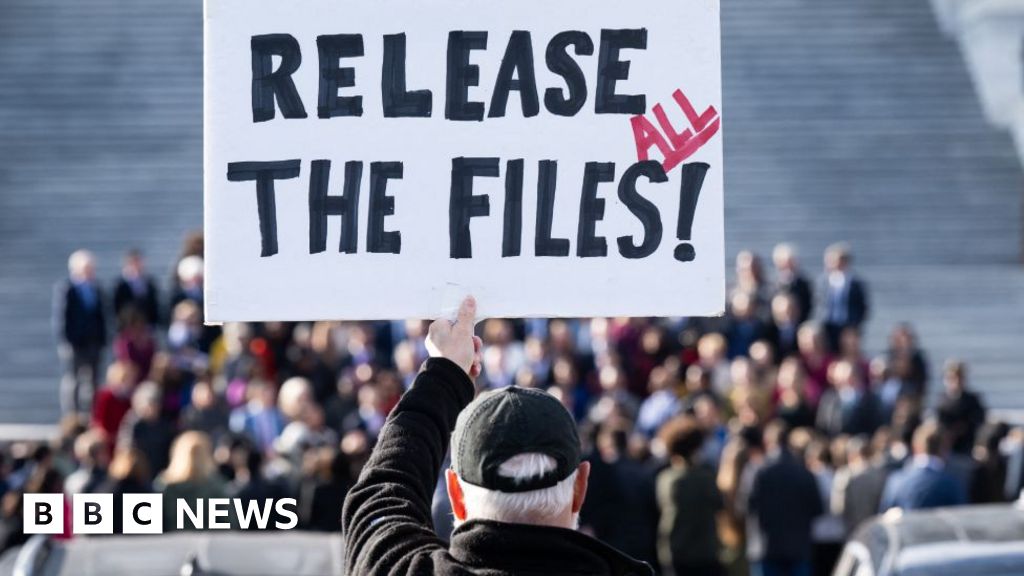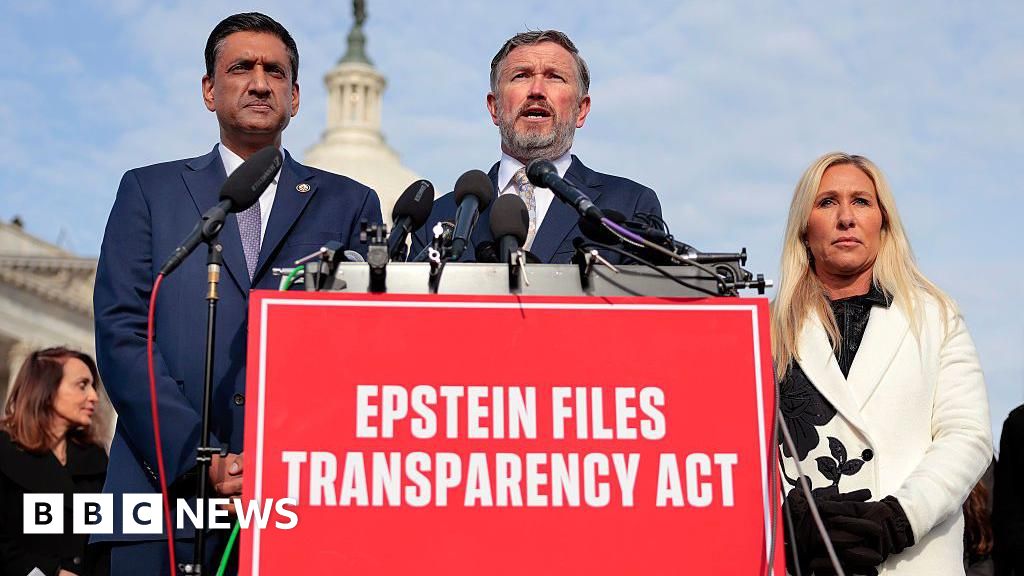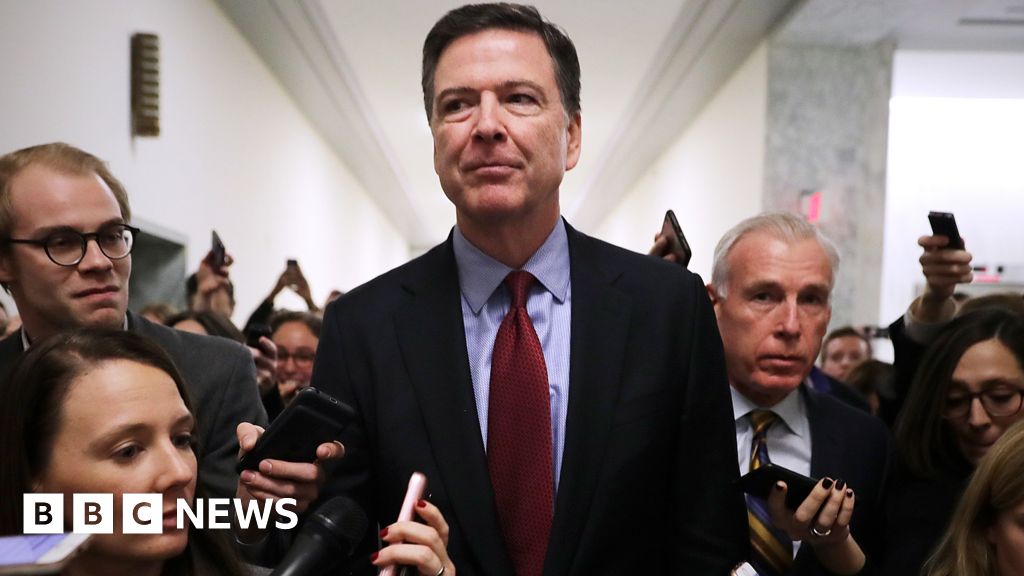Bernd Debusmann Jr,at the White House and
Nardine Saad
 Reuters
ReutersSurvivors and family members talk about Jeffrey Epstein files
The US Congress has approved a measure to force the US Justice Department to release all files pertaining to its investigation into convicted paedophile Jeffrey Epstein.
The bipartisan bill, which calls for the release of the files "in a searchable and downloadable format" within 30 days, cleared the Senate after it was overwhelmingly passed by the House of Representatives on Tuesday.
It next needs the sign-off of President Donald Trump. The president urged fellow Republicans on Sunday to vote for the release of the records - abruptly reversing course after previously trying to draw a line under the controversy.
He had faced push-back from Epstein victims and a brewing revolt from rank-and-file Republicans demanding the trove of documents be unsealed.
Congress' lower chamber began debating the measure on Tuesday morning and voted within hours. Several of Epstein's victims spent the day on Capitol Hill advocating for the bill's passage.
Nearly all the House lawmakers voted in favour of the resolution, which passed 427-1. Clay Higgins, a Louisiana Republican, was the only lawmaker who voted against the bill. Two Republicans and three Democrats did not vote.
The House Oversight Committee has already made public thousands of documents from the Epstein estate relating to the late financier, but the resolution passed on Tuesday covers material currently in the possession of the justice department.
Those records could, in theory, include files about imprisoned Epstein co-conspirator Ghislaine Maxwell, as well as figures - including government officials - mentioned in the case. It could also include internal justice department documents.
When will Trump sign the bill?
On Wednesday morning, the Senate confirmed that it had passed the Epstein bill and sent it to Trump.
The president has indicated he will sign the measure, though it is unclear exactly when he will do so.
On his Truth Social platform on Tuesday night, he posted that he did not care when the Senate passed the bill.
He urged Republicans not to lose sight of "all of the Victories that we've had" under his presidency.
When will the Epstein files be released?
Once the US president signs the measure, the justice department will have 30 days to release its materials on Epstein.
But there are obstacles to the files being shared even if Trump signs the bill.
The House bill said the justice department can hold back any documents that "jeapordise an active federal investigation or ongoing prosecution, provided that such withholding is narrowly tailored and temporary".
That could potentially lead to delays, given that Trump has called for investigations into Epstein's links with prominent Democrats, such as Bill Clinton and Larry Summers, "to determine what was going on with them, and him".
Clinton has strongly denied he had any knowledge of Epstein's crimes, whereas Summers has apologised for his "misguided decision" to continue communicating with Epstein until 2019.
"That's a potential hurdle," Jonathan Entin, a constitutional law professor at Case Western Reserve University in Ohio, told the BBC.
"If, in fact, this is a serious investigation, presumably the prosecutors will not want everything out there while they're sorting out whether they bring charges."
For those who have campaigned for the release of the files, anything short of full disclosure is likely to spark further questions and even outrage.
Several Republican lawmakers have expressed worries that Trump's order to the justice department to investigate Epstein's ties could slow the release of the files.
Thomas Massie, a Kentucky congressman, vowed that he and fellow Republican dissident Marjorie Taylor Greene, of Georgia, would "absolutely" go to the floor of the House and read out the names of "some of the men" in the files if the records were not duly released by the justice department.
Watch: How much do Americans care about the Epstein story?
Will the files be redacted?
In addition to possible delays, the public is also likely to see lots of redactions in any release of new Epstein documents.
In the tranche of files released by the House Oversight Committee last week, names and phone numbers were frequently blacked out to protect privacy.
The latest bill says the attorney general can "withhold or redact" records that include victims' names, medical files and other personal information that "would constitute a clearly unwarranted invasion of personal privacy".
"Simply letting anything out could reveal a lot of private information that's not relevant or appropriate for public consumption," Prof Entin said.
The attorney general can also withhold classified material and images of sexual abuse.
The justice department has already said that a "large volume" of its 300 gigabytes of data from Epstein investigations includes images and videos of minors and thousands of downloaded videos and images of child sex abuse.
Other information in the documents could be protected by grand jury secrecy rules, which the latest bill does not explicitly address.
US Attorney General Pam Bondi said on Wednesday morning when asked about the Epstein files during an unrelated news conference: "We'll continue to follow the law with maximum transparency, while protecting victims."












